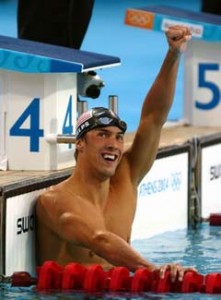 Sport psychology is about improving one’s attitude and mental skills to help them perform their best by identifying limiting beliefs and embracing a healthier philosophy about their sport. In order to instill a healthy belief system one must first identify irrational thoughts that limit their performance. Beliefs and attitudes such as high expectations, comfort zones and negative self-labels often limit athletic performance. These core unhealthy beliefs must be identified and replaced with a new way of thinking. One sport psychology intervention to help athlete identify negative beliefs and adapt a healthier approach is to:
Sport psychology is about improving one’s attitude and mental skills to help them perform their best by identifying limiting beliefs and embracing a healthier philosophy about their sport. In order to instill a healthy belief system one must first identify irrational thoughts that limit their performance. Beliefs and attitudes such as high expectations, comfort zones and negative self-labels often limit athletic performance. These core unhealthy beliefs must be identified and replaced with a new way of thinking. One sport psychology intervention to help athlete identify negative beliefs and adapt a healthier approach is to:
1. Identify and eradicate expectations that limit success.
2. Replace expectations with manageable objectives instead of “strict” and ingrained expectations.
3. Replace expectations with high levels of self-confidence.
Dr. Patrick Cohn states that this intervention may be confusing for some athletes because high expectations are often associated with high confidence. Athletes may also have trouble differentiating between expectations and manageable objectives (or goals). Thus it is important for professionals to explain and define each concept. Expectations are strict demands athletes place on their performance such as having a perfect performance. With expectations, athletes are constantly judging how well they are performance compared to how they expect to perform. This creates a very result-oriented focus and causes athletes to become frustrated when not playing up to their expectations and/or limit their performance when playing better than expected.
Confidence is the belief in one’s ability to execute a task or win an event. A strong self-belief without expectation (self-judgment) is ideal. Confidence precedes execution and is void of judgment post execution. Manageable objectives are used as “focal tasks” during performance. No judgments are involved. They allow an athlete to focus on the process and execution. Objectives create a process-oriented focus. This intervention can be a revelation for many athletes once they realize that expectations are limiting their performance.


























nice oene